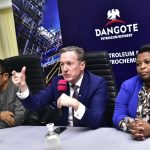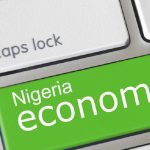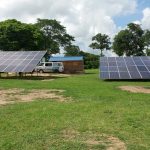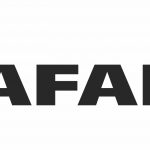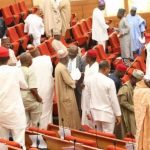Technology
Nigeria’s Peachwater Consulting Start-up of the year Award

**As Kenya’s HydroIQ Grabs Startup of the year Africa 2018
By Dipo Olowookere
Winners of the ‘Startup of the Year 2018 competition’ have been announced by Startup.Info following an awards ceremony held in Casablanca at the end of last month.
This year, more than 600 start-ups from 52 different countries took part, more than 12 000 online votes were gathered, and 41 million people reached on social media.
After the first edition of ‘Startup of the year Africa’, the collaborative start-up magazine, Startup.Info, reiterated its commitment to supporting African innovation. With the support of major international groups such as OCP, ENGIE, QWANT, FINANCE INNOVATION, PwC, Labs-NS-Avocats, Holmarcom Group, Royal Air Maroc, as well as 70 media and ecosystem partners, Startup.Info launched the 2nd edition of the contest.
The jury of experts of the competition ‘Startup of the year Africa 2018’ on January 24, 2018 to choose Kenya’s HydroIQ as Startup of the Year Africa 2018.
The firm, founded by Brian Bosire & Victor Shikoli, is a virtual Water Network Operator that brings intelligence in water distribution by preventing leakages on the network and automatic (mobile) billing a payment.
Also announced is Morocco’s Ecodome as the Qwant Public Choice Award winner. The company was founded by Youness Ouazri and it produces ecotouristic housing made of natural soil in the form of domes.
Côte d’Ivoire’s Graci, which had the OCP – AGRITECH Special Prize and was founded by Brou Kouame Yves Laurent.
It is a startup aiming at the development of rice production in Ivory Coast. It proposes a program of production, certification and distribution of Improved Certified Seeds of rice.
For Nigeria’s Peachwater Consulting founded by Okey Ibekwe Esse, it won the ENGIE Special Prize Startup of the year Award.
Peachwater Consulting designs, manufactures and markets Powerstove clean cookstove that is smokeless and generates electricity with 70% less biomass fuel than competitors.
Furthermore, French Semoa was announced winner of the Royal Air Maroc-Africa Diaspora Award. The firm was founded by Edem Adjamagbo and it proposes a solution to the development of e-commerce in Africa by installing payment terminals throughout the continent.
Thea from France was announced winner of the Holmarcom Group Special Prize award and was founded by Dr Eloi MONKAM.
Thea is a medical mobile app that connects patients to doctors for a first diagnosis.
Also, South Africa’s Priyo founded by Palesa Mahlatji was named the PwC – Jury Choice Award. The company has developed a portable solar digital smart computer lab to train youth from underprivileged, under-resourced schools and communities in rural and peri-urban areas on how to use the computer. Priyo trains them in IT: End user computing, ICT, Digital Marketing and E-Learning and links job seekers to online employment opportunities.
In addition, Project Alpha from Madagascar was revealed as the Community Manager of the year award winner.
The firm was founded by Muriel Randriamasimanana and the event agency has its principal activity based on video games and e-sport phenomena.
Business Post gathered that the African startup of the year will receive €10,000 in cash and a €10,000 Visibility Pack amongst others.
Technology
Elumelu-backed Redtech Plans $100m Raise as Transactions Double to N30trn
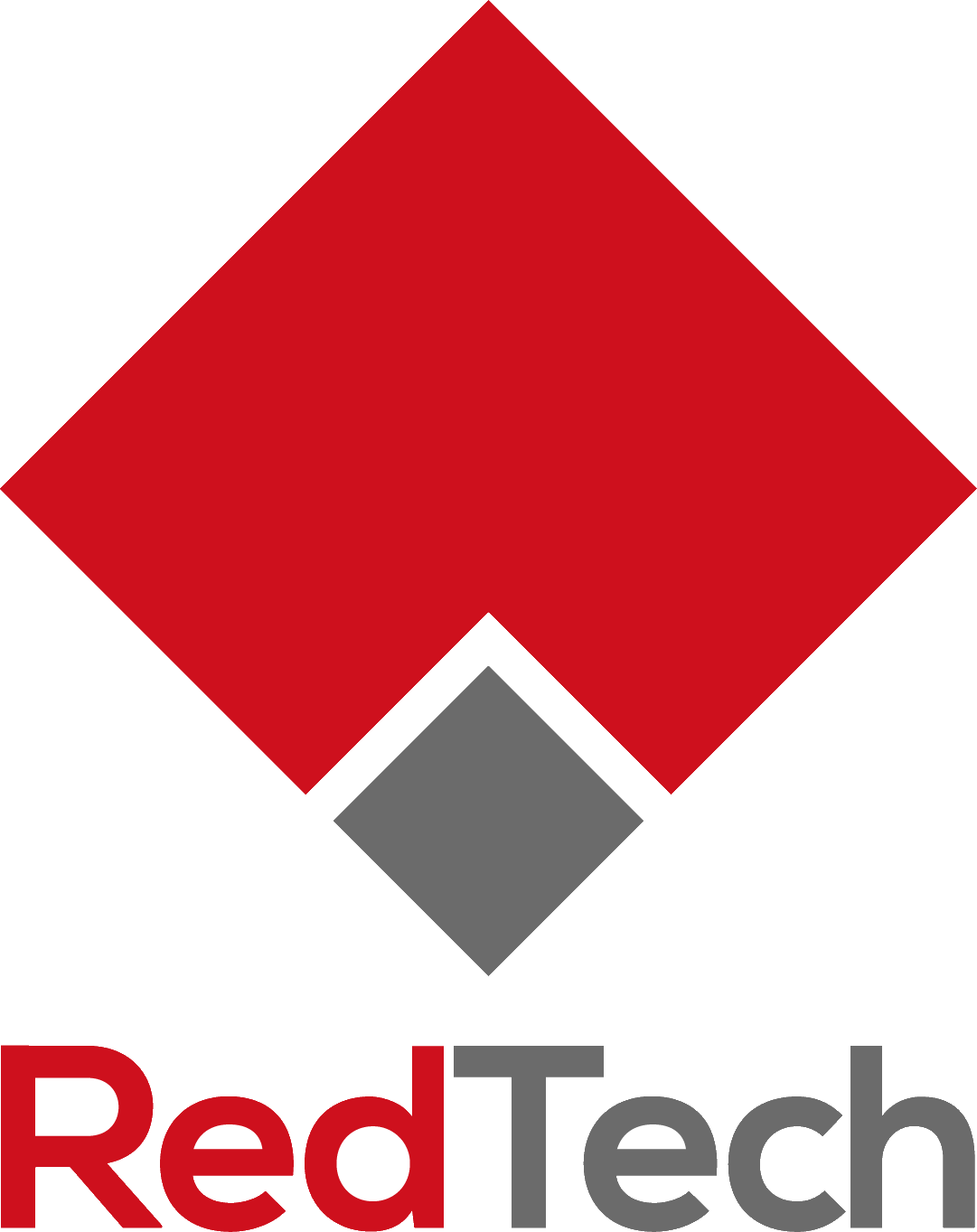
By Adedapo Adesanya
Redtech Limited, a Nigerian financial-technology company backed by Nigerian businessman, Mr Tony Elumelu, is considering to raise about $100 million in the next two years to expand its footprints across Africa.
This comes as it announced processing N30 trillion ($20.6 billion) in total transactions over the 2025 financial year, over 100 per cent more than the N12 trillion achieved in 2024, placing the company among the highest-volume processors in Nigeria.
The milestone was driven by strong growth across its payment platform, RedPay – including POS network, merchant collections, and digital payment channels.
According to the firm’s chief executive, Mr Emmanuel Ojo, the milestone marks a decisive shift from capability building to operating at national scale, reflecting sustained trust in Redtech’s infrastructure under high-volume conditions, alongside consistent adoption across sectors.
“This milestone reflects trust from businesses that rely on us to collect and move money at scale, and from partners who expect reliability every single day. We have built Redtech around durability, strong governance, and regularity alignment, so SMEs, enterprises, and regulated clients can grow on our rails without worrying about downtime or friction. With that foundation in place, we are ready to take this approach into more African markets,” he said.
According to a statement, the firm’s transaction volumes have been driven by a mix of SMEs, enterprise customers, and financial institutions across retail, hospitality, insurance, energy, public-sector-linked services, and banking. This highlights Redtech’s ability to support complex transaction flows, including batch processing, reconciliations, and always-on uptime across different sectors.
Redtech plans to expand beyond Nigeria into 29 African countries by January 2027, building towards an Africa-wide payments capability that can support businesses operating across borders, sectors, and payment types.
The company will then consider the Series A funding round, Mr Ojo told Bloomberg.
The startup has so far deployed more than 30,000 point of sale devices and started a payment gateway which helps businesses move money at scale through secure, reliable, and scalable systems that reduce payment failures, downtime, and reconciliation failures while meeting the compliance needs of enterprises and regulated sectors.
Technology
Innovators Lighten up Interswitch Innovation Product Demo Day
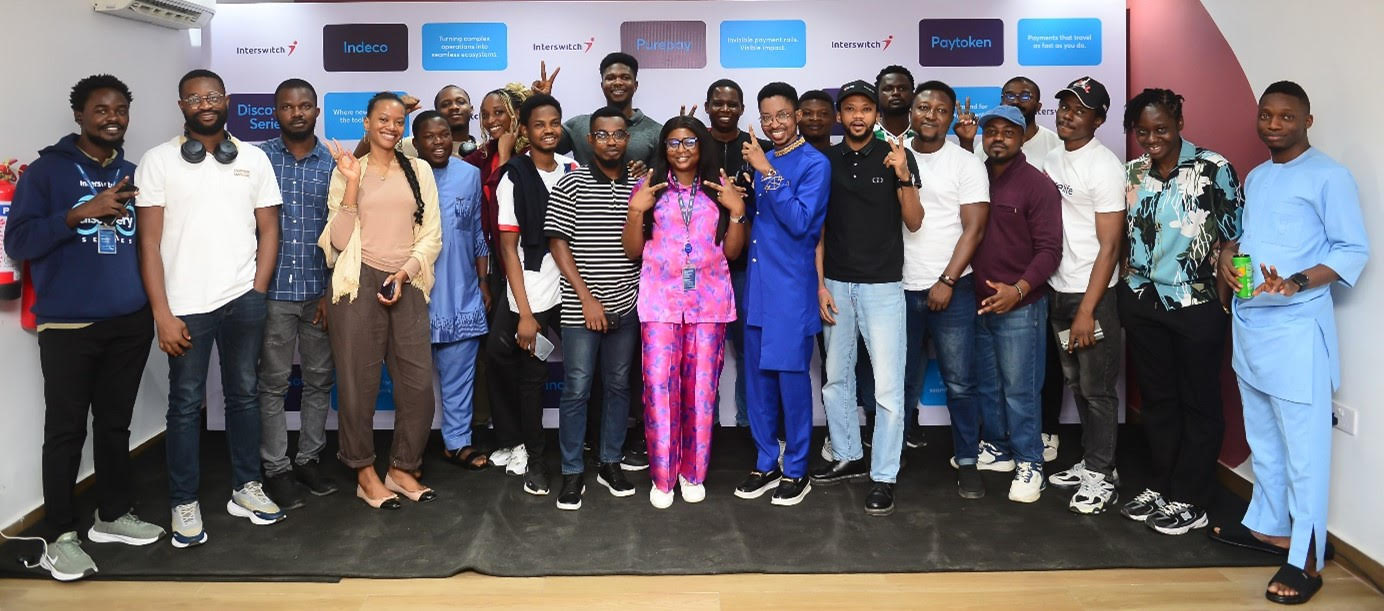
By Modupe Gbadeyanka
From Wednesday, January 28 to Friday, January 30, 2026, several experienced and budding innovators were at the inaugural Innovation Product Demo Day put together by one of Africa’s leading integrated payments and digital commerce companies, Interswitch.
The event was organized as a celebration of ingenuity and a catalyst for collaboration, as well as the company’s renewed commitment to building scalable digital solutions and infrastructure that power Africa’s evolving digital economy.
The programme brought together product managers, software engineers, and developers from across the Interswitch ecosystem, alongside student innovators from select tertiary institutions, to spotlight ideas, experiments, and early-stage solutions shaping the company’s next frontier of growth.
They all converged on the Interswitch Innovation Lab Co-Working Space in Lagos. The firm used the occasion to showcase how innovation is built at Interswitch, through structured experimentation, rapid iteration, and cross-functional collaboration.
Over the course of three days, teams unveiled a wide range of working prototypes, new product features, and emerging concepts, engaging in open dialogue that encouraged idea exchange, integration opportunities, and customer-centric problem solving.
The event also featured student innovators from Landmark University and Redeemer’s University, who presented solutions developed through the Interswitch Discovery Series, an initiative designed to nurture future-ready technical talent and strengthen Africa’s innovation pipeline. The students showcased products built from the skills and insights gained through the programme, underscoring Interswitch’s long-term investment in talent development and ecosystem sustainability.
Each presentation opened the floor for robust discussion, with participants offering feedback, asking critical questions, and sharing perspectives on how solutions could be refined, strengthened, and scaled. This collaborative environment reinforced Interswitch’s approach to innovation as a continuous learning process, grounded in execution, accountability, and real-world impact.
“The Interswitch Product Demo Day is more than a showcase. It’s a space where our teams can test ideas, learn from one another, and see the real-world impact of their work. It strengthens collaboration, builds technical capability, and inspires both our people and the wider tech community to keep shaping the future of technology,” the Chief Innovation Officer, Interswitch, Ms Adaobi Igwe-Okerekeocha, said.
Technology
Airtel Commits to Boosting Nigeria’s Digital Infrastructure
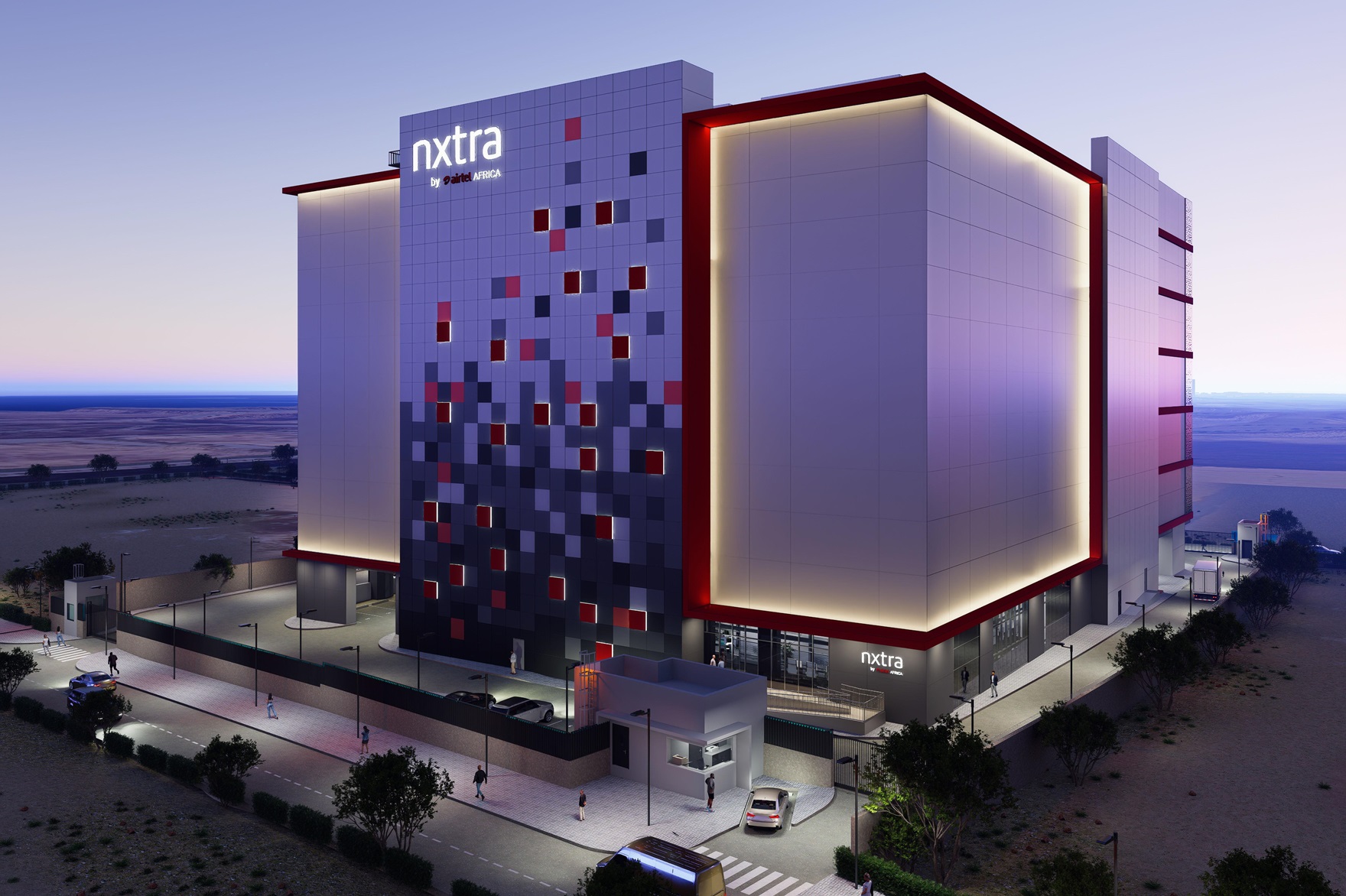
By Modupe Gbadeyanka
A leading telecommunications firm, Airtel Nigeria, has reaffirmed its long-term commitment to strengthening the country’s digital infrastructure and data access to bridge gaps in connectivity and unlock new opportunities in the country.
The company gave this reassurance during a recent inspection tour of its ongoing Nxtra Data Centre at Eko Atlantic, Lagos.
The data centre is being established to deliver hyperscale and edge facilities across key African markets. With a load of 38 Megawatts, the Lagos facility is expected to serve as a major hub for data hosting, cloud services, content distribution, artificial intelligence, and enterprise solutions in West Africa.
“This Nxtra Data Centre in Lagos represents a critical part of our long-term vision for Nigeria’s digital ecosystem. Today’s visit allows us to review progress, engage our stakeholders, and ensure that our infrastructure investments continue to meet global standards and local needs.
“This data centre will deliver critical high multi megawatt capacity in line with hyperscale customers and enable high density environment. We are putting the infra to bring the cloud to Nigeria,” the chief executive of Airtel Africa Plc, Mr Yashnath Issur, said.
Also commenting, the chief executive of Airtel Nigeria, Mr Dinesh Balsingh, said, “Since the announcement of this project, our focus has been on building a world-class facility that supports Africa’s digital transformation agenda.
“We are encouraged by the progress recorded so far and remain committed to delivering a secure, energy-efficient, and future-ready data centre for Nigeria,” reiterating that the data centre is progressing steadily towards the previously announced 2028 go live date.
On his part, the chairman of Eko Atlantic, Mr Gabbi Massoud, disclosed that, “Eko Atlantic as a city with high quality infrastructure will contribute positively to boost the economy of Nigeria and is a perfect place for the development of the digital infrastructure of Nigeria.
“The Nxtra data centre reflects the calibre of projects we seek to attract — long-term, technology-driven investments built to the highest global standards.
“Today’s visit affirms the rigour of the planning and execution process by Nxtra, and the commitment of Eko Atlantic to facilitate and promote the Nigeria’s evolving digital ecosystem.”
-

 Feature/OPED6 years ago
Feature/OPED6 years agoDavos was Different this year
-
Travel/Tourism9 years ago
Lagos Seals Western Lodge Hotel In Ikorodu
-

 Showbiz3 years ago
Showbiz3 years agoEstranged Lover Releases Videos of Empress Njamah Bathing
-

 Banking8 years ago
Banking8 years agoSort Codes of GTBank Branches in Nigeria
-

 Economy3 years ago
Economy3 years agoSubsidy Removal: CNG at N130 Per Litre Cheaper Than Petrol—IPMAN
-

 Banking3 years ago
Banking3 years agoSort Codes of UBA Branches in Nigeria
-

 Banking3 years ago
Banking3 years agoFirst Bank Announces Planned Downtime
-

 Sports3 years ago
Sports3 years agoHighest Paid Nigerian Footballer – How Much Do Nigerian Footballers Earn







